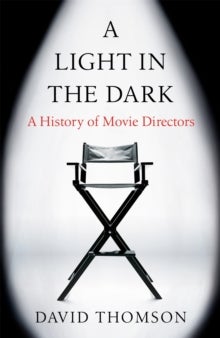
A Light in the Dark av David Thomson
169,-
<p>In little more than a century of cinema - <i>Birth of a Nation</i> was one hundred years old in 2015 - our sense of what a film director is, or should be, has shifted in fascinating ways. A director was once a functionary; then an important but not decisive part of an industrial process; then accepted as the person who was and should be in charge, because he was an artist and a hero. But the world has changed. In a nutshell, the change takes the form of a question: Who directed <i>The Sopranos</i> or <i>Homeland</i>? Hardly anyone knows, because we don''t tend to read TV credits and the director has returned to a more subservient and anonymous role. Directors now try to be efficient, the deliverers of profitable films, and are often involved as producers, like Steven Spielberg.<br><br>David Thomson''s brilliant <i>A Light in the Dark </i>personalises each chapter through an individual: Jean Renoir, Howard Hawks, Jean-Luc Godard, Alfred Hitchcock, Luis Bunuel, Orson Welles, Fritz Lan








